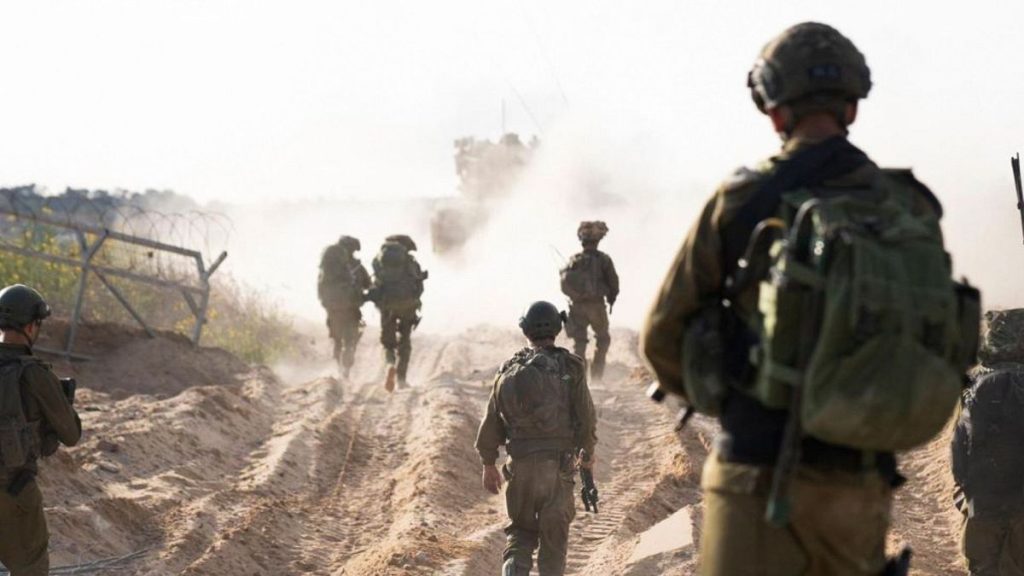The recent conflict in Gaza has ignited a complex web of legal and ethical questions, particularly regarding the potential prosecution of Israeli soldiers for alleged war crimes. The case of a former Israeli soldier hastily departing Brazil following legal proceedings initiated by a Palestinian advocacy group underscores this emerging concern. The Hind Rajab Foundation, named after a young Palestinian girl killed during the conflict, filed a complaint with Brazilian authorities, leading to an investigation into the soldier’s alleged involvement in the demolition of civilian homes in Gaza. The foundation’s evidence included video footage, geolocation data, and photographs reportedly implicating the soldier. Israel’s intervention in facilitating the soldier’s departure from Brazil before the investigation could fully unfold has raised eyebrows and fueled accusations of shielding individuals from accountability. The incident highlights the precarious legal position of Israeli soldiers potentially facing prosecution abroad and the Israeli government’s proactive stance in protecting its military personnel.
Israel’s defense rests on the assertion that its military operations in Gaza are conducted in strict adherence to international law. The government blames Hamas for civilian casualties, arguing that the militant group deliberately embeds military infrastructure within residential areas, effectively using civilians as human shields. This argument forms the cornerstone of Israel’s defense against international accusations of war crimes. However, the sheer scale of devastation in Gaza, coupled with the mounting civilian death toll, has intensified international scrutiny of Israel’s military tactics. The widespread sharing of videos and images on social media, purportedly showing Israeli soldiers engaged in questionable activities, further fuels the debate and provides potential evidence for future legal actions.
The sharing of military-related content on social media by Israeli soldiers has become another point of contention. While such posts may seem innocuous to those involved, they can inadvertently provide valuable evidence for investigations into alleged war crimes. The Israeli government, recognizing the potential legal ramifications of these online activities, has urged its soldiers to exercise caution and refrain from sharing sensitive information related to their military operations. This advice underscores the growing awareness within the Israeli military of the potential evidentiary value of social media posts and the need to manage the digital footprint of its soldiers.
The situation is further complicated by ongoing investigations by international bodies. The International Criminal Court (ICC) has issued arrest warrants for Israeli Prime Minister Benjamin Netanyahu and his former defense minister, while the International Court of Justice (ICJ) is conducting a separate investigation into allegations of genocide. These investigations add another layer of complexity to the legal landscape and increase the pressure on Israel to demonstrate its commitment to international law. The outcomes of these investigations could have far-reaching consequences for Israeli officials and further expose the country to international legal scrutiny.
The backdrop against which these legal battles are unfolding is one of escalating violence and humanitarian crisis in Gaza. The war, triggered by Hamas’s October 7th attack on southern Israel, has resulted in a staggering loss of life and unprecedented levels of destruction in Gaza. The death toll continues to rise, with thousands of Palestinians, including a significant number of women and children, having perished. The sheer scale of human suffering underscores the urgency of finding a peaceful resolution to the conflict and highlights the devastating impact of war on civilian populations. The destruction of homes, infrastructure, and essential services has left the majority of Gaza’s population displaced and in dire need of humanitarian assistance.
The war in Gaza has not only resulted in an immediate humanitarian catastrophe but has also ignited a complex legal and political firestorm. The potential for Israeli soldiers to face prosecution abroad, the ongoing investigations by international courts, and the mounting evidence of civilian casualties paint a bleak picture. The conflict has exposed deep-seated divisions within the international community and raised fundamental questions about accountability, justice, and the laws of war. As the fighting continues, the legal and political ramifications of the conflict are likely to reverberate for years to come, with profound implications for both Israel and the Palestinian people. The need for a just and lasting peace has never been more apparent.














